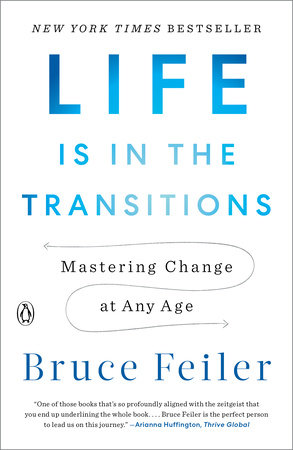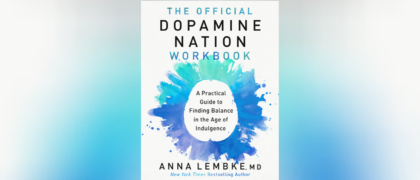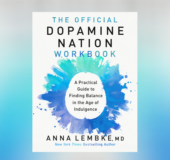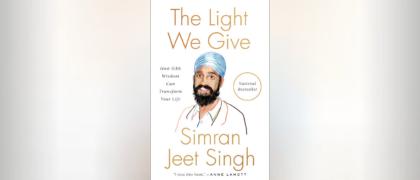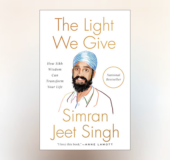 Q: What is a life transition and why are they important right now?
Q: What is a life transition and why are they important right now?
A: At its simplest, a life transition is the way humans cope with periods of change. When we get hit by a major life disruption, or lifequake as I call these times, we often freeze with indecision and fear. The life transition is how we get out of that frozen state and move into a period of reinvention and renewal. The lifequake puts us on our heels; the life transition puts us back on our toes.
What’s unique about this particular moment in history is that the entire planet is going through a life transition at the same time. And yet, no one is teaching us how to navigate these experiences. What I’ve tried to do over the last five years is tease out from the hundreds and hundreds of life stories I’ve collected a playbook for how to get through challenging times. I’d go so far as to say that mastering life transitions is the most urgent life skill each of us needs right now.
Q: Is that why your book is called Life is in the Transitions?
A: Yes! I chose that title, which is quote from William James, because it captures the primary lesson I’ve learned from interviewing hundreds of everyday people about the day-to-day techniques they used to navigate their most challenging periods: They turned them into periods of meaning and growth. My research found that we spend half our adult lives in transition. You or someone you know is going through one now. As long as we have to spend so much of our lives in this unsettled state, why not learn to master them? Instead of seeing these times as slogs we have to grind or grit our way through, we should see them for what they are: Opportunities to revisit and revise our life stories.
Q: Your book seems remarkably timely. Many college students have experienced extraordinary upheaval at an already tumultuous time in their lives. What advice do you have for them?
A: The most important thing I would say to young people is to think of mastering life transitions as a critical life skill. My data show we go through three to five lifequakes in the course of our lives. Their average length: four to five years. Do the math, and that means we spend 25 years – as I mentioned, that’s half of our adult lives – in transition. College is the first collective, voluntary lifequake that most students have ever faced. While that’s unnerving, it’s also an opportunity. The best way to take advantage of this time of uncertainty is to adopt the skills of a classic life transition. So my advice is to think of your time in college not just as an opportunity to learn, make friends, and grow, but to acquire the lifelong tools of getting the most out of periods of change. If you do that, you will give yourself a leg up and head start on what’s to come.
Q: What exactly does that toolkit entail?
A: That’s a good question. For starters, transitions involve three phases. I call them the long goodbye, in which you say goodbye to the life that’s not coming back; the messy middle, in which you shed certain habits and experiment with new ones; and the new beginning, in which you unveil your new self. Just knowing this structure tends to make people feel more relaxed and confident. Now think about what students goes through during their time in college or university: They have to learn to live independently from their parents (that’s the long goodbye); they have the opportunity to decide which childhood habits or beliefs they want to leave behind, then experiment with creating new forms of identity (that’s the messy middle); then, by the time they’re through with college and ready to enter the world, they have to prepare to unveil their new selves to the world (that’s the new beginning). And how long does this process take? Four to five years. Those steps and those numbers are exactly the lifetime average. That’s why I’ve been telling students and administrators for years that college may be the purest life transition any of us will ever go through. So my message: The more you think about this time in your life as an opportunity to learn skills you’ll tap in for the rest of your life, the more you set yourself up to succeed in the future.
Q: You started writing this book well before the pandemic. What inspired you?
A: I had a huge lifequake, a period of wrenching personal change when crises seem to be piling up. For many years, I enjoyed what I now call a linear life, conventional success, marriage, and family. Then, in short order, I was diagnosed with a life-threatening cancer. Then I had financial problems. Then my father, who was suffering from Parkinson’s, tried to take his own life six times in twelve weeks. I went looking for a book that could help in those moments when life seems to be coming at you from all directions. I couldn’t find one.
So I set out on this journey, collecting life stories from Americans in all 50 states. I called this The Life Story Project. It was the most profound experiences I’ve ever had. I spoke with people who lost limbs, lost homes, changed careers, changed religions, got out of cults, got over addictions. In the end, I had a thousand hours of interviews. The single most gratifying aspect of watching readers embrace this book has been that everybody feels that they see themselves in these stories and that they learn something from people just like them. So what I’d like to say to anyone struggling with change is: I was where you are; I met people who went through far worse and still came out feeling stronger; there is knowledge out there; we can get through this together.
Learn more at www.brucefeiler.com
Watch Bruce’s TEDTalk here:


